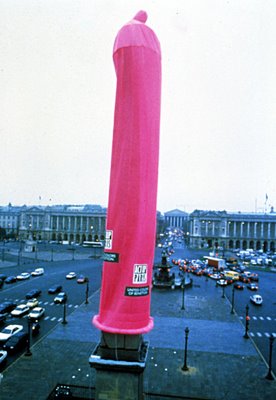
In my last journalism posting, I wrote a little bit about the increasing censorship in Iran as seen through the eyes of the internet. But recently I’ve become aware of a far broader and perhaps more detrimental type of censorship, one that exists in every country and in every medium of journalism: self-censorship.
Self-censorship takes many forms, but it usually centers around repressing an idea for a story or an angle to take on a story. The simplest and most common reason for self-censorship seems to be when the subject matter is considered too complex to explain to the readership or audience, which seems just plain silly to me. And perhaps it is my relative inexperience as a journalist speaking, but I don’t think there is a single subject matter in the world that a good writer, journalist or not, should not be able to break down and explain easily for a reader. That’s an integral part of being a journalist, to explain. So it would seem that this basis for self-censorship stems either from deplorable writing skills or just plain laziness.
A more deadly form of self-censorship occurs however when the business and financial interests of the media strike “the Fear” into a journalist, deterring them from reporting on a subject that might raise some controversial issues (commonly known and referred to as a ‘conflict of interest’). Like ABC (which is owned by Disney) reporting on the wrongdoings of Disney Land’s hiring policies.
But at times “the Fear” is instilled not by the business interests of the media but by the editors themselves, either knowingly or not. Good journalists are constantly coming up with ideas and pitching them to their editors, some of which get pursued and made into stories, others find homes in the beloved newsroom wastebasket. But when an editor denies a story, there’s a manner in which they can do so that encourages a reporter to keep coming up with ideas even if the last one wasn’t so stellar. Or an editor can do so, with an air that dismays the reporter from ever again pitching an idea on a particular subject matter, which often results in self-censorship.
And sometimes “the Fear” seeps into the actual editor…I mean after all, it is more likely for an editor to get fired for running a controversial story than to get fired for not running it. And thus, self-censorship sometimes comes about as a result of not wanting to deviate from the norm of what the mainstream media deems newsworthy. But that’s, arguably, the heart of journalism: always looking for new stories and angles to take, reporting what the public doesn’t know but should. When a story’s hot, its hot and it becomes surpassingly popular, to the point where, unfortunately, if a particular media outlet doesn’t report on it, then they run the risk of losing their audience. So the media finds itself in between a rock and a hard place of wanting to publish alternatives to the norm and yet wanting to maintain a steady readership that can rely on them for coverage on the norm itself. Hence yet another element of self-censorship, where a story isn’t published or isn’t pursued because of the potential risk it could bring about.
All I’m saying is that when I work for a publication, I don’t want them to have the toe muscles of a ballerina from tiptoeing around “acceptable” stories. And while some people make the argument that in order for a paper to sell, it has to cater to its audience, I’m more inclined to argue that in order for a paper to sell it has to cater to the interests of the audience, and I think that the American public is interested in not merely justifying their own opinions in the news that they read, but in expanding their knowledge base and quenching the parching curiosity that festers inside them. Am I giving Americans too much credit? Or are we just so used to being droned into complacency that we think this is what we want…to read and watch shit for news?
The reading habits and desires of America will not change until the writing habits and desires of America change, and that will not happen until self-censorship is recognized, called out onto the plank and made to wobble before the entire world of journalism.



